AARP Hearing Center

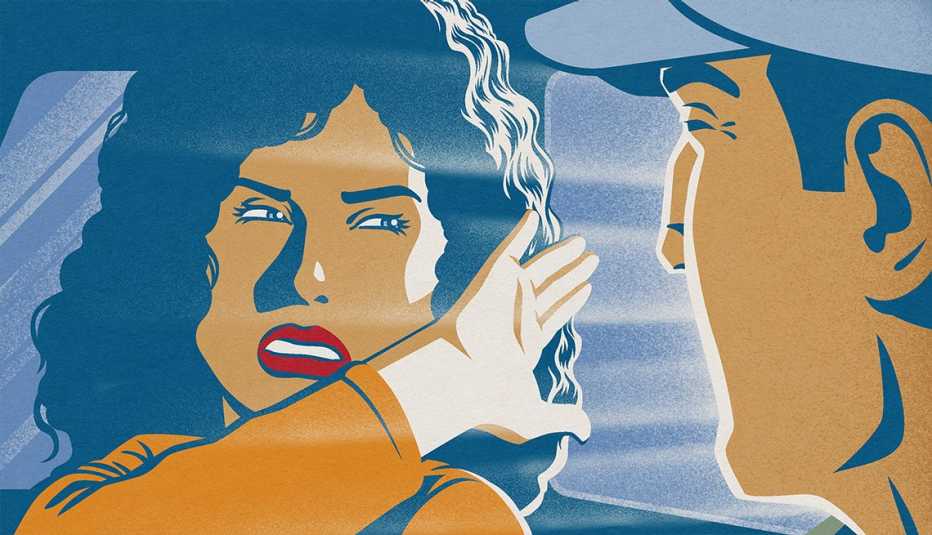
19
A Funeral for a Friend
Strickland left me sitting in the tiny lobby of the sheriff’s department for half an hour in what was probably some psychological, “I’ll show you who’s boss” type of manipulation. I decided I could not be intimidated, though my leg bounced nervously and I gave a start every single time the back door opened. Alan had plenty of one-way advice, to which I felt incapable of responding due to the presence of the desk sergeant sitting four feet from me. “See if you can find out about this Franklin Wexler,” he instructed, clearly forgetting who was driving my body. I was not going to bring up any names—providing the sheriff with information he didn’t already have just seemed to get me in more trouble.
Finally Barry Strickland was standing there, crooking his finger in what apparently was a departmentally approved gesture. He led me to a small, windowless room with a mirror on one wall.
“Well this place could not be more bleak,” Alan huffed as I was seated in a wooden chair. “Could they not spare a single painting on the wall?”
I tried to imagine a person actually believing that an interrogation room should be cheerful.
I guess I always thought that a polygraph machine was a device that somehow measured brain waves, but what those little jumping needles represented was something much more mundane: pulse, breathing, perspiration, and blood pressure. The examiner who told me to call him Justin looked exactly like Bill Gates. “This doesn’t hurt, doesn’t do any damage of any kind. I’ll ask you a series of establishing questions, and then I have a list of questions here that the sheriff has supplied. He’s already shown you these questions, is that correct?” Justin asked in sort of a nerdy drone.
“Yes,” I answered, swallowing. One of them, Do you know who killed Alan Lottner? was making me sweat already. I didn’t want to tell Strickland about Burby and Wexler because I didn’t want to tell him about Alan dwelling in my head.
Alan sensed my nervousness. “Don’t worry, I’m here with you,” he murmured. I didn’t have any way to inform him that his being here with me was why I was worried.
“First question then. Is your name Ruddick J. McCann?”
“Yes.”
“Okay, good!” Alan praised.
Justin was frowning. “Mr. McCann, are you feeling well today?”
“Yes,” I answered formally.
Justin shook his head. “No, that wasn’t a control question, I’m just asking. Are you currently taking any medication?” He picked up the form I’d filled out a few minutes ago, confirming my answer as I said it.
“No.”
Justin pursed his lips. “Let’s try another one. Are you a resident of Kalkaska?”
“Yes.”
Justin cocked his head, considering.
“Something’s not right,” Alan observed.
“Let’s try this. I will ask you a question, and I want you to deliberately lie. This is called a ‘directed question,’ okay?”
“Got it.”
“Mr. McCann, are you a resident of East Jordan?”
“Yes.”
Justin’s eyes widened in surprise. He looked up at me.
“And you’re not, right?”
“Pardon?”
“You list your address as Kalkaska. You’re not from East Jordan.”
“No. I mean, yes, I’m from Kalkaska.”
Justin nodded. “Excuse me for a moment.” He stepped out of the room, closing the door behind him.
“What’s going on?” Alan asked.
I glanced at the mirror on the wall. “I’m probably being filmed, here,” I stated, sounding like I was announcing it to myself.
Alan got the message. “Justin’s acting like there’s a problem with the equipment,” he said, using the tone of voice that meant he didn’t expect me to reply.
A few minutes later Justin was back, unhooking me from his machine. “The sheriff would like to see you now,” he told me, appearing unhappy.
I, too, was less than joyous. “The sheriff would like to see you now” sounded like “Please report to the principal’s office.” “That’s it?” I asked. “The examination is over?”
Justin the Bill Gates impersonator gave me a bland, “sorry your computer crashed” type of look.
I could see as I settled into the chair in front of Strickland’s desk a few minutes later that I was not going to be on a first-name basis during this particular interview. Strickland’s eyes were cold and he didn’t offer me any coffee. His toothpick jabbed out at me from the corner of his mouth. “Grubb says there was a problem with your polygraph,” he told me.
Grubb, I deduced, was Justin Grubb the Bill Gates impersonator. Apparently he, too, had lost stock with the sheriff today.
“He didn’t really ask me any questions,” I responded a bit defensively.
“He said you’re too jumpy, you responded to the control questions as if you were lying, but then when he directed you to lie, it was as if you were telling the truth.”
“I think I know why that might be,” Alan mused thoughtfully.
“Well, I have no idea why that should be. I didn’t do it deliberately,” I protested.
The sheriff regarded me for a long moment. “You know what I’ve got on the murder of Alan Lottner?” he finally asked me.
I shook my head.
“You, that’s what I’ve got. You knew where to find him, you knew who he was before we dug him up. Now, I can spend a lot of resources cross-indexing you with every inmate in the state prison system you might have run into who could have put a bullet in the victim’s head, but that’s four years’ worth of convicts. It would be a lot cheaper and easier if you would just come clean and tell me what you know.”
Strickland’s eyes were hard and unforgiving. I sighed in frustration.
“You shouldn’t have told him you dreamed it,” Alan coached.
“I read about it in the newspaper,” I said.
Strickland frowned. “Read about what in the newspaper?”
“About Alan Lottner. I had this dream that someone was buried in the woods, and I wondered who it might be. So I went to the library in East Jordan and started looking through back issues of the newspaper, and when I saw the story about Alan Lottner, I figured that he was the guy. There aren’t that many people who disappear like that, up here.”
Strickland considered my statement while I shifted uncomfortably under his stare.
“That doesn’t make any sense,” Alan noted helpfully.
The sheriff asked me exactly when it was I had been going through the microfiche at the library, and I told him. “Wait here,” he said curtly, leaving the office.
“Alan, do you think this is helping?” I demanded as soon as the door was shut.
“I’m just offering constructive criticism,” he responded defensively.
“No! Constructive means I can construct something out of it. All you’re doing is sitting there making snide comments. If you’ve got something brilliant to say, then say it, but otherwise shut up, okay?”
Alan made a miffed sound but I was in no mood to apologize. I wiped sweaty palms on my jeans.
After a few minutes Strickland came back in and sat in his chair, regarding me warily. “The librarian confirms you spent a couple of hours going through the microfiche. Why didn’t you tell me this before?”
“Because I didn’t think you’d believe me. I mean, I know how weird it must sound, me dreaming about it.”
Strickland snorted. He gave me a long stare, like he didn’t know quite what to do with me. “We had a psychic one time on a missing child, waste of time. The little girl was taken by her uncle, just like we all figured. Is that what you are, a psychic?”
Everyone in northern Michigan seemed to have psychics on the brain. “No, sir,” I answered, dreading the idea that he might somehow know that my sister was running what was, in essence, a psychic hotline. He didn’t mention it, though, surprising me with his next question.
“You hear voices in your head sometimes, Ruddy?”
I swallowed. “Well, yeah. How did you—”
“I hear you’ve been spending some time with Deputy Timms’s fiancée,” he interrupted.
“They’re not engaged!” Alan and I blurted together.
Strickland arched his eyebrows at my reaction. “She told me they were only talking about getting married, sir,” I explained more calmly.
The sheriff stood up and stared out his window. A gray fog was rolling through the town, erasing the details of the trees visible from his office. “It’s my job to protect the citizens of this county,” he told me after a minute.
“Tell him you’re a citizen, too,” Alan urged.
“Yes sir, but I’m a citizen, too,” I said.
Strickland turned back to me. “You’re an ex-con,” he corrected icily. “You’ve got psychiatric issues. And you’re running some kind of game here, I just don’t know what. Probably taking advantage of Alan’s family. I want you to stay away from Katie Lottner.”
“No!” I responded without thinking. Probably not too many people said that word to Strickland. His face turned dark.
I jumped agitatedly to my feet. “Look, do you think I wanted this? I didn’t ask to dream about Alan Lottner. I didn’t even know the guy!”
“You’ve been saying you did know me,” Alan murmured.
“I mean, I’ve been saying I did know him but I didn’t, okay? I just had this dream, this horrible ...” I squeezed my hands into fists. “I came here to tell you about it. If I hadn’t, you never would have found him and we wouldn’t be having this conversation.”
“You will sit in that chair until I tell you otherwise.”
I sat back down. Strickland regarded me for a long moment. “You’re a confused man, McCann, and every time I see you, some of that confusion rubs off on me. But on one thing I’m very clear. I will not have you messing with Katie Lottner’s head. She’s burying her father tomorrow and in her state of mind you probably look like some kind of hero.”
“Burying me? You mean they’re having a funeral for me tomorrow?” Alan demanded.
“You tell her about Lisa Marie Walker?” Strickland asked.
I swallowed.
“I thought not. She know about the voices?” I just stared at him.
“Here’s where we stand. I’m going to continue my murder investigation. If I find you have been withholding important information from me I am going to see you prosecuted and you will go back to prison. I’m tired of your brand of happy horseshit.” Strickland opened his door and stuck his head out into the hallway. “Deputy!” he shouted. He turned back to me. “The deputy will take you back home. We’re finished here. I truly hope I don’t have to talk to you again, McCann.”
My neck was bent as I followed the deputy out to the patrol car and slid inside. The sky was dark and his windshield wipers came on before we’d gone a mile. Alan finally seemed to realize I couldn’t very well answer his questions, and before long I felt him slip away into his sleep state. The deputy didn’t have much to say, either.
At the Black Bear, two kids were playing at the pool table, clacking the balls together by hand-rolling them. It took me a long time to register the significance: I couldn’t remember the last time parents had brought their children with them to the Bear.
Jimmy slid up next to me. “Hey, Ruddy, here.”
I looked blankly at the wad of money he was shoving at me. “What is it?”
“I worked out a payment arrangement with Milt, and he said you’d already paid fifty dollars, you know, on that check scam I fell for, so I’m paying you back.”
“No, hey, you should hang on to it.”
“S’okay. It’s from tips.” I stared into Jimmy’s guileless eyes and then took a full survey of the room. Several tables had people sitting at them, doing something almost unheard of at the Black Bear: eating. Jimmy jumped up. “I’ve got to run. Maybe if it slows down we can play some pool later?”
“If you think we can beat them,” I said, pointing to the kids. Jimmy shrugged, grinning.
There weren’t any bar fights between the families for me to break up that night, so I went home feeling like events were conspiring to render me useless.
As I pushed open my front door, Jake glanced expectantly behind me to see if Jimmy was coming home, too.
“We talked about this, Jake. You have to love me more. I’m the one who feeds you.”
Yeah, his look said, but you don’t let me up on the bed.
I eased down onto the floor and put my arms around my dog. Alan was still asleep and I felt unusually alone in the world. Jake seemed to sense it, his pink tongue coming out for a reassuring lick. I sighed. Alan asked me why I couldn’t treat people the way I treated my dog—but why couldn’t anybody treat me like Jake did?
As soon as he woke up the next day, Alan started talking. First he wanted to speculate on why I had flunked the “state your name” portion of the polygraph—his theory, that the two of us were somehow melded together, “my truth” mingling with “his truth,” made me peevish.
“I don’t want any part of you mingling with any part of me, Alan,” I said. Then he wanted to talk about his funeral. We were going to go, weren’t we? Would Marget be there, even though she had divorced him? Was it going to be at Burby’s? That made sense, but what nerve the man had.
“How come you’re not answering me?” Alan asked after a while, sounding frustrated.
“You seem to be doing a good job of holding up both ends of the conversation,” I noted.
“Well, maybe that’s because you’re not saying anything.”
I didn’t say anything. Just call me Mr. Irony.
“What’s wrong?” Alan pressed.
“What’s wrong? You mean besides having a dead man in my head who won’t shut up?”


























































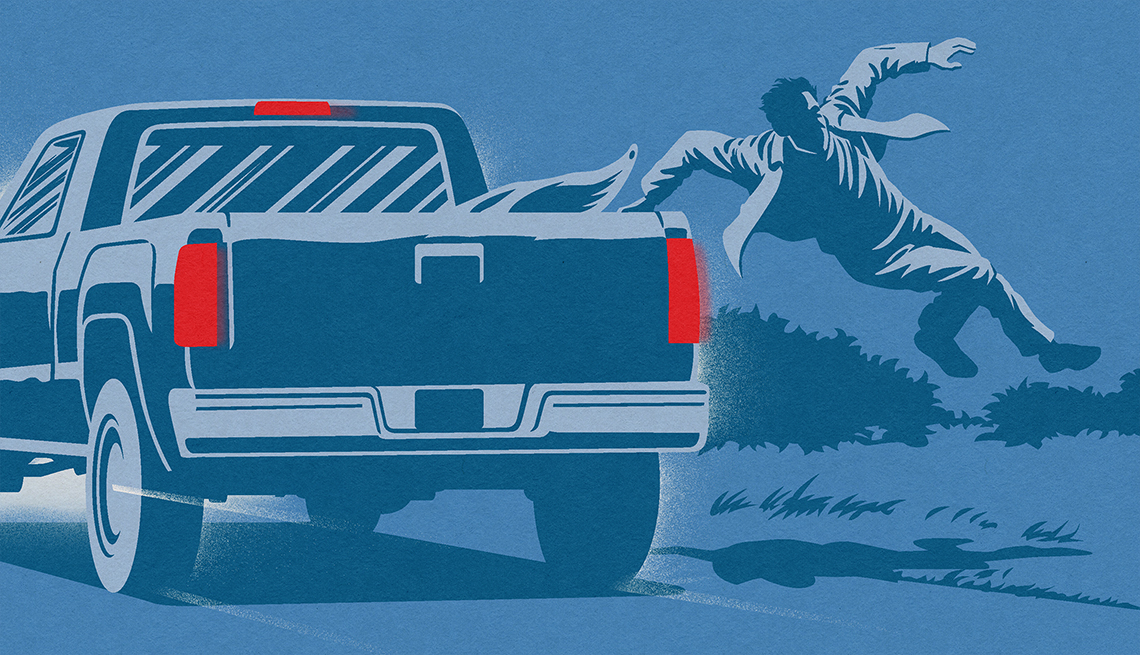

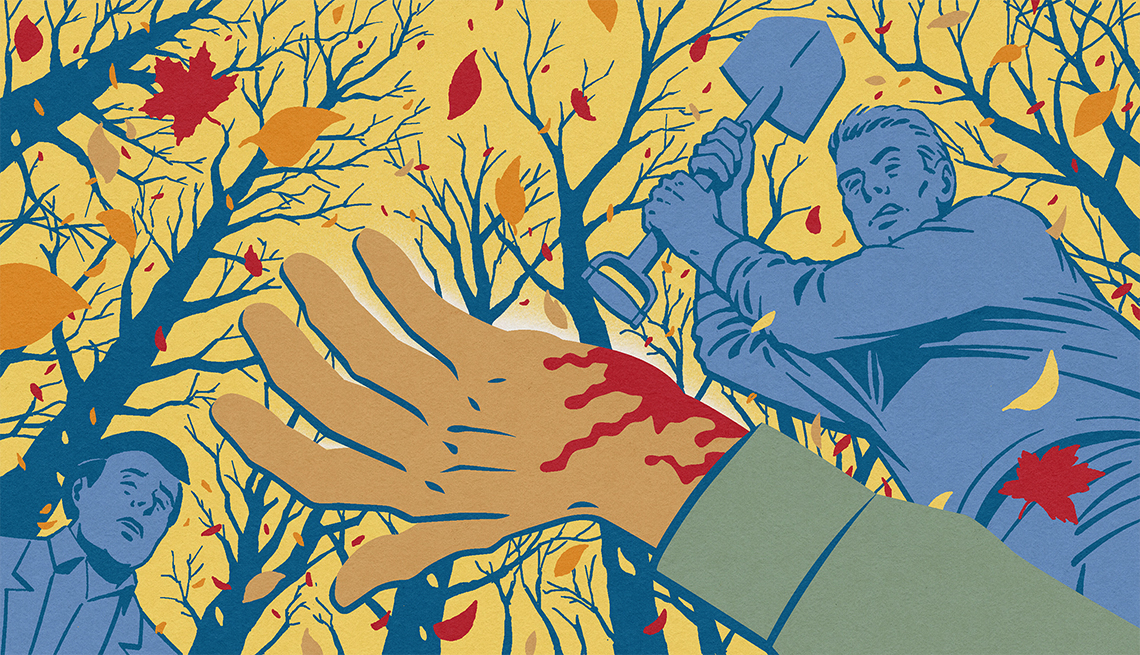

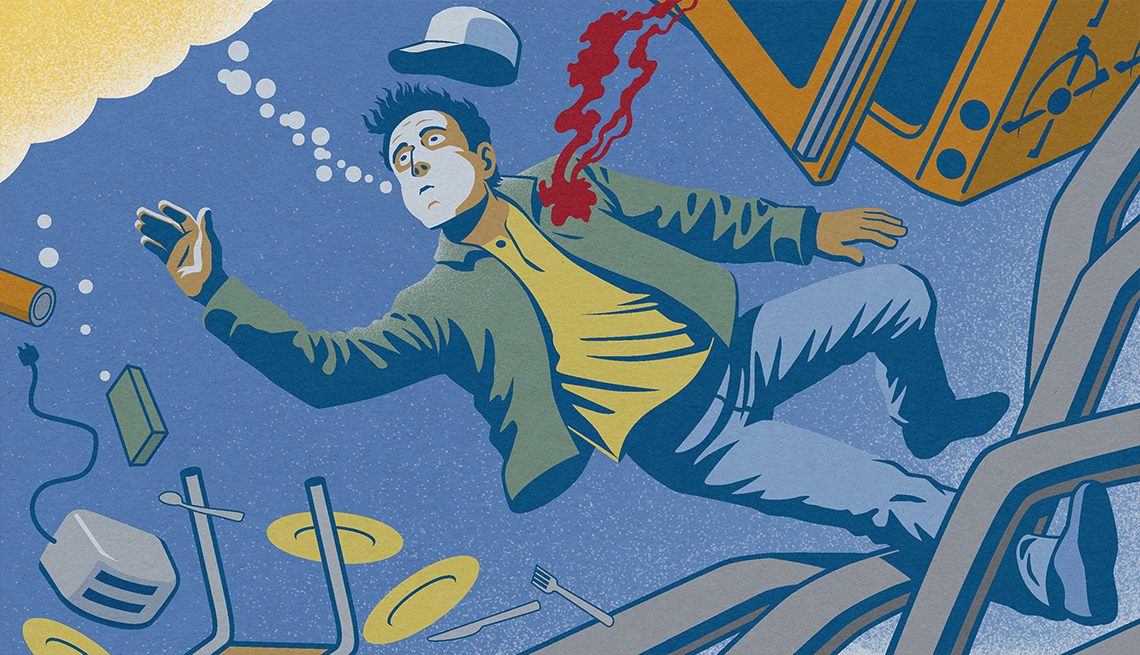
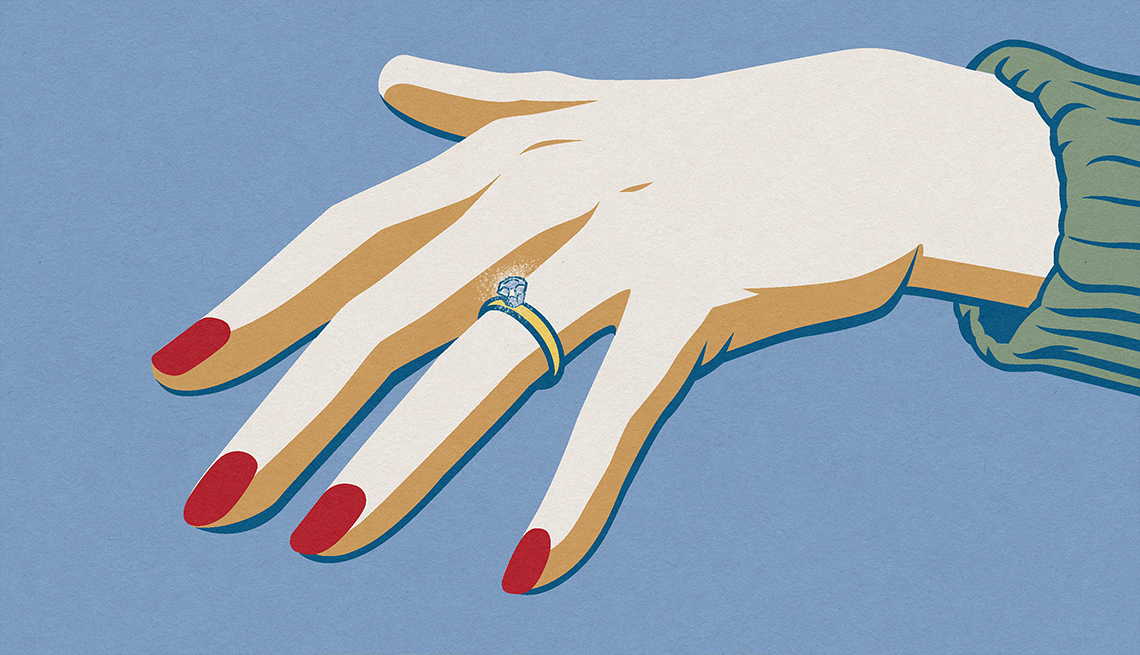
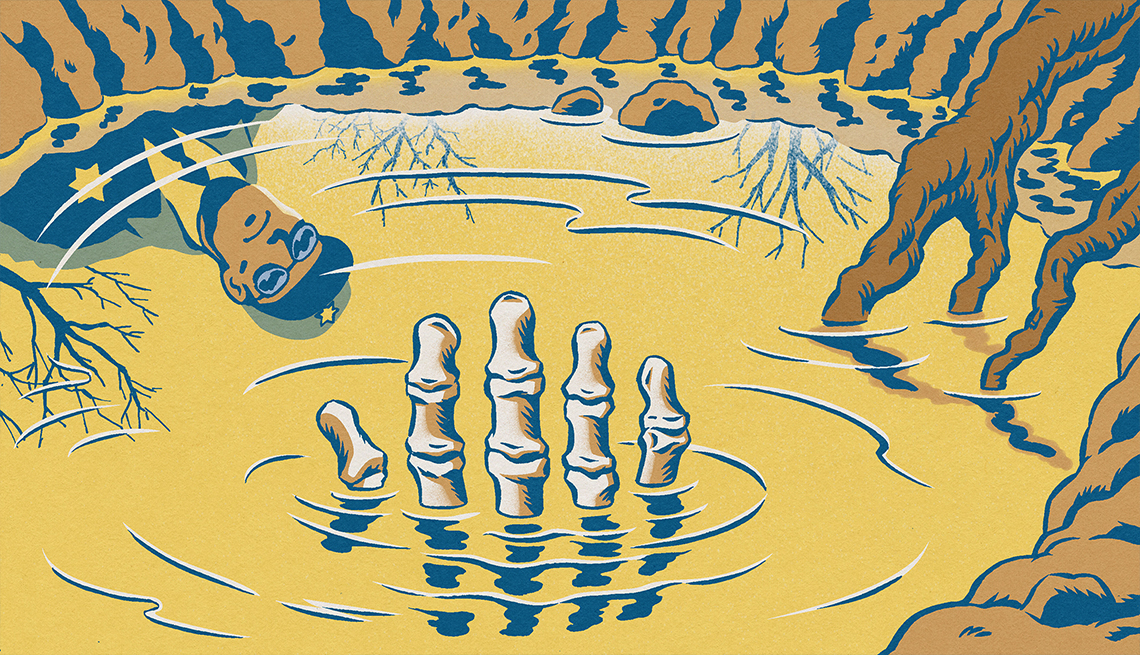
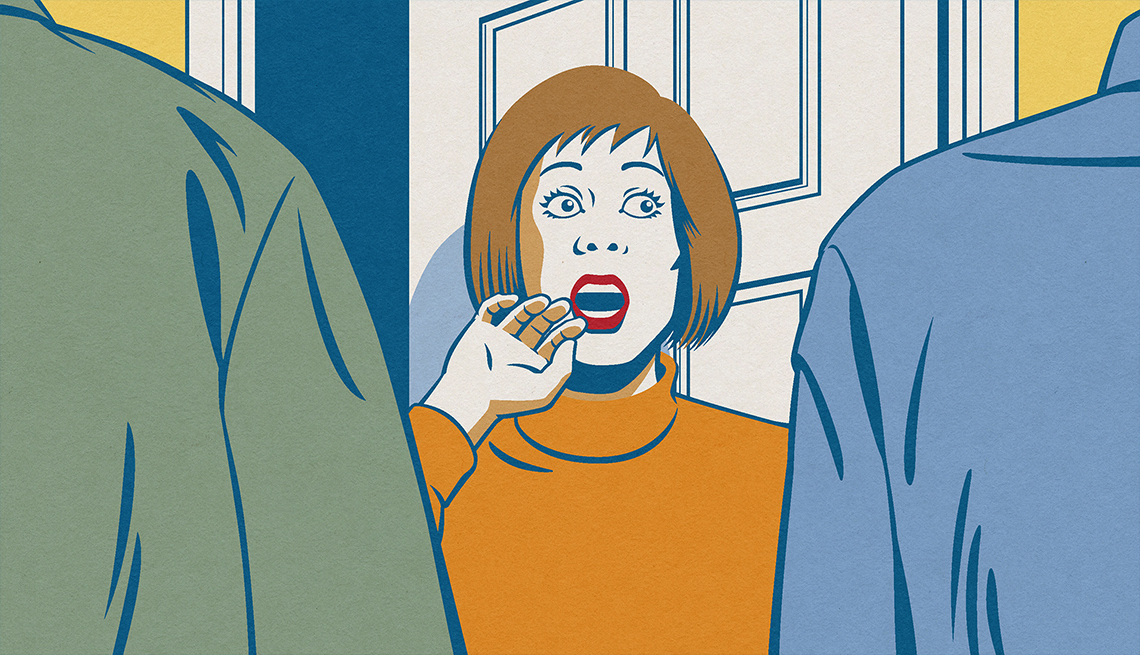

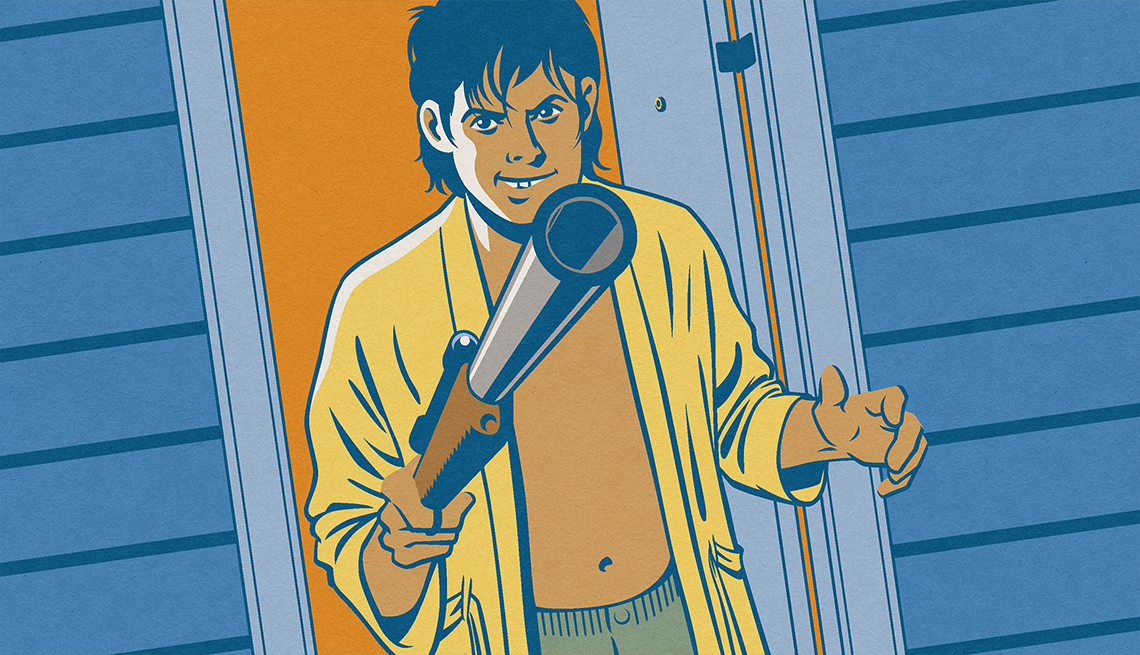
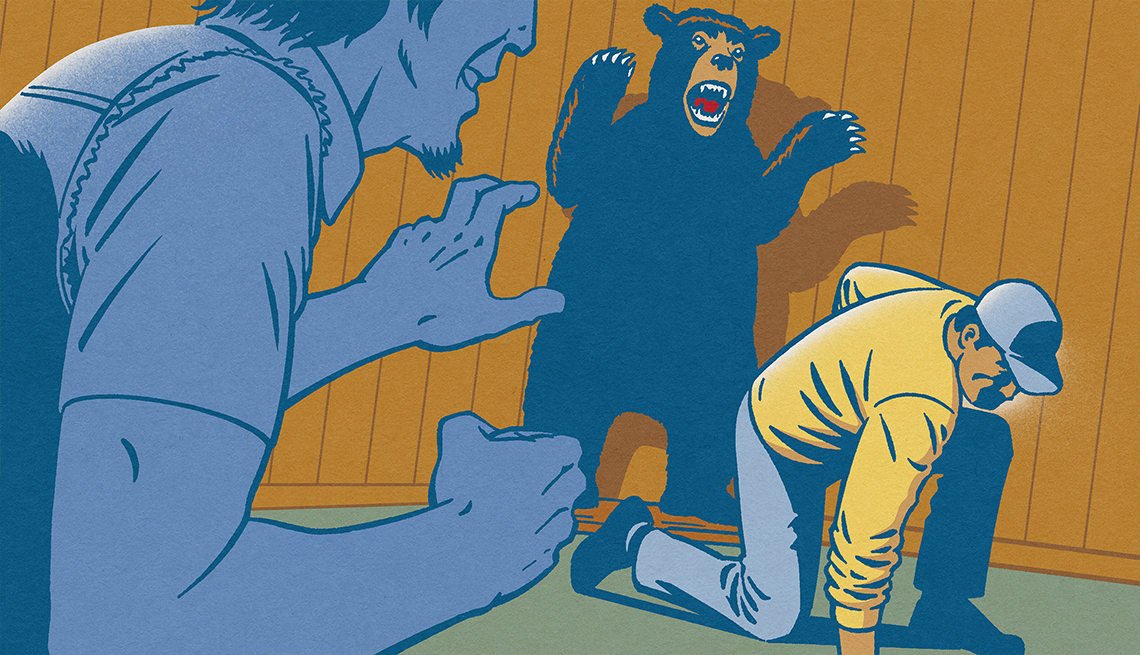
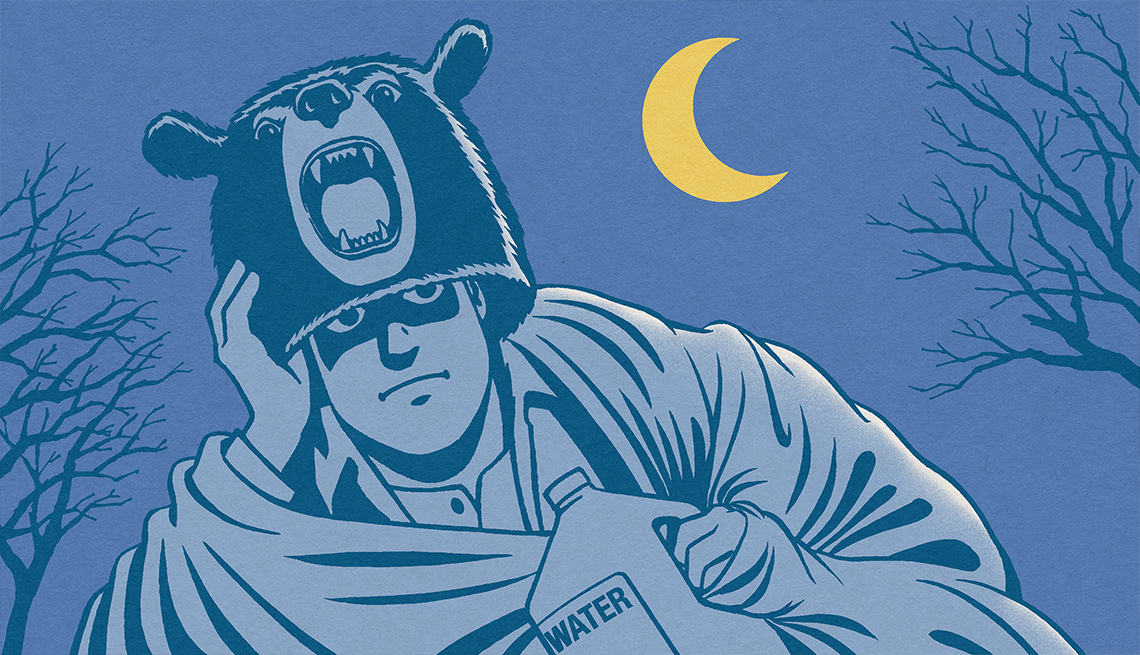
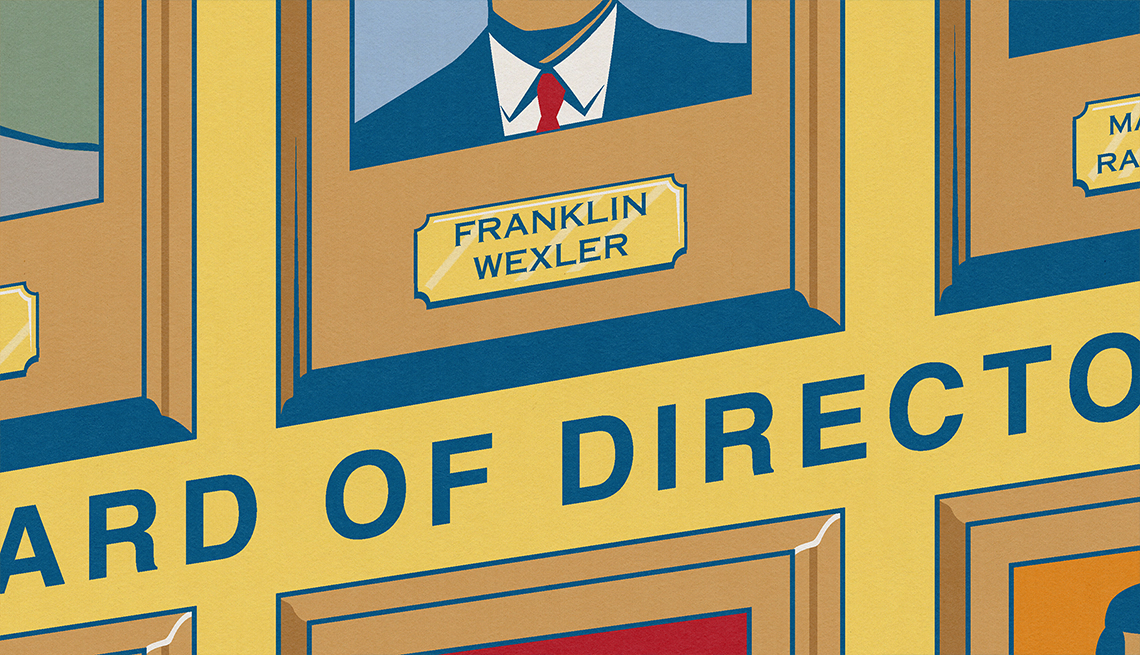
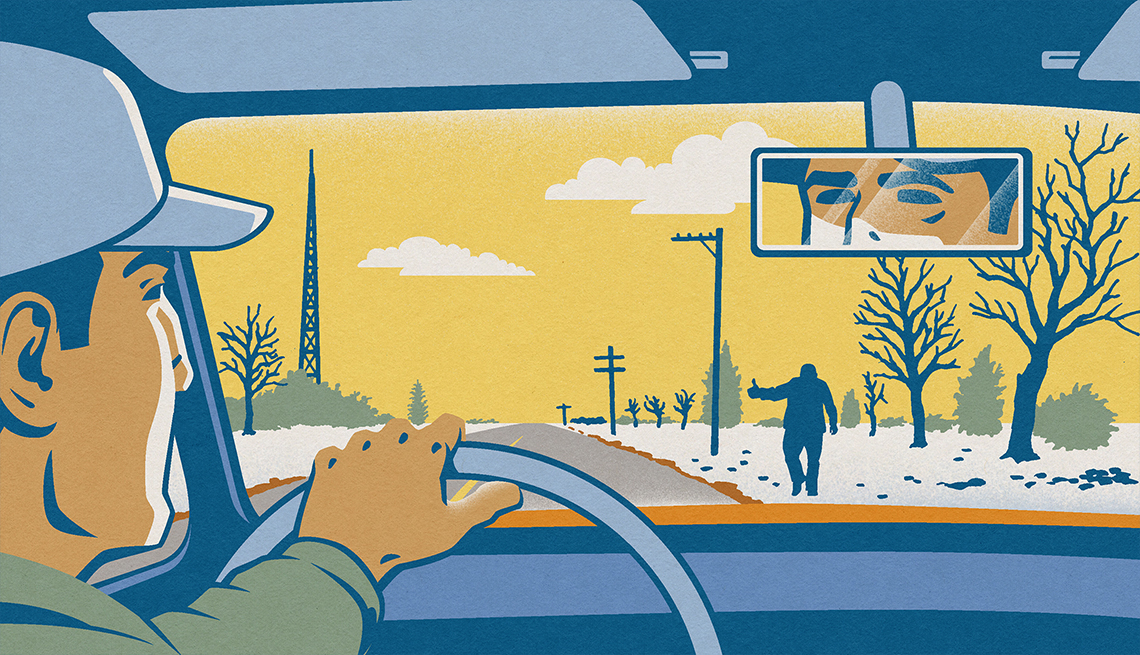
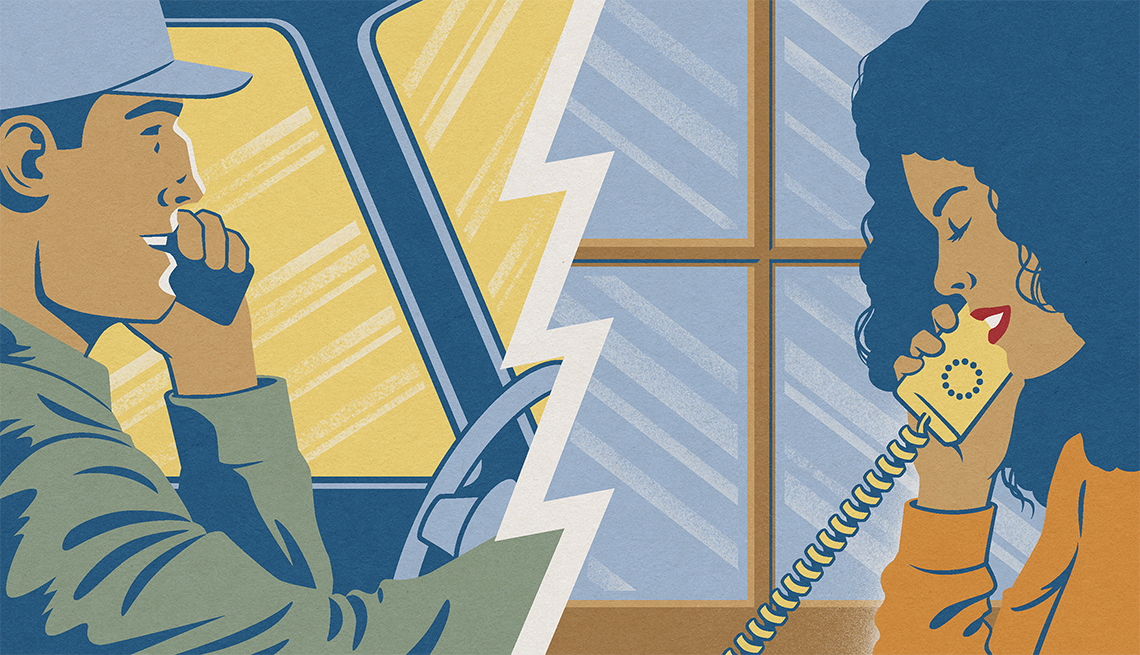
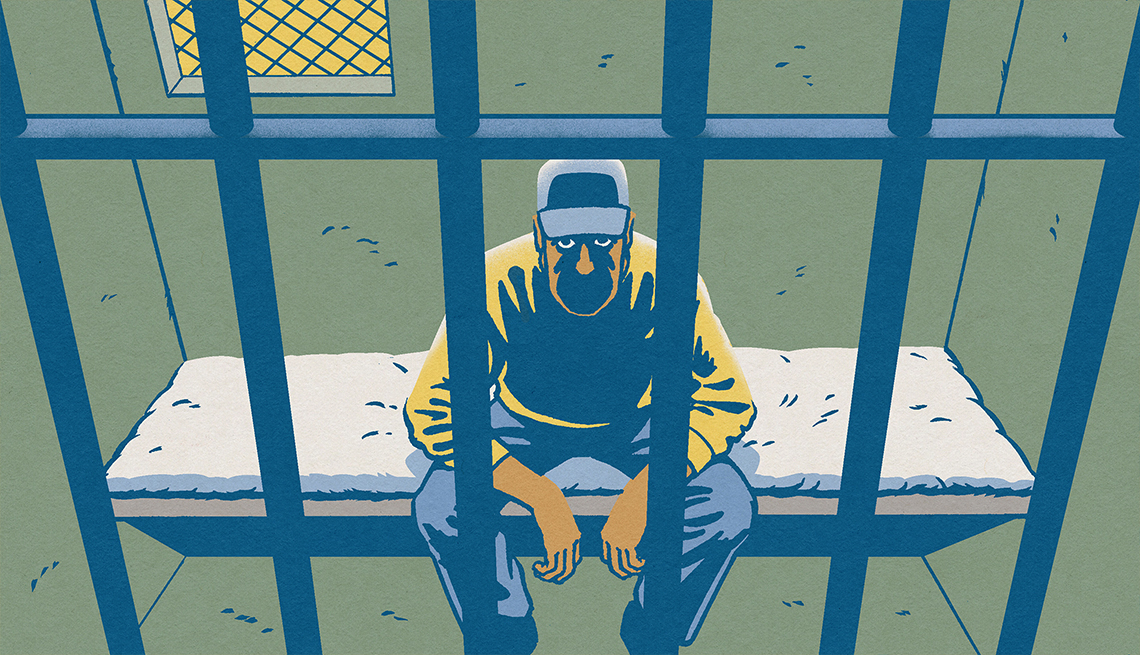



More From AARP
Free Books Online for Your Reading Pleasure
Gripping mysteries and other novels by popular authors available in their entirety for AARP members